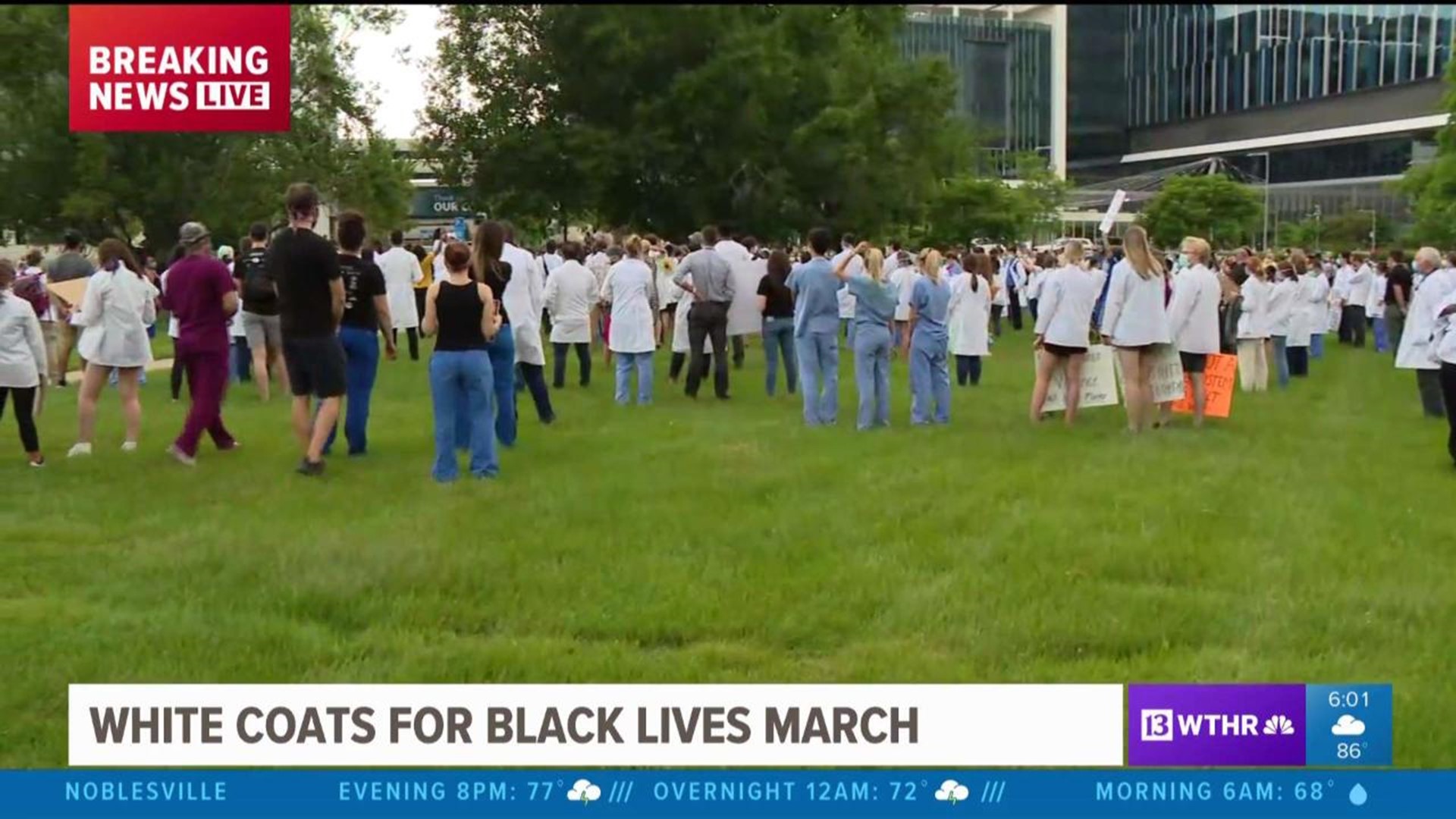INDIANAPOLIS (WTHR) — White Coats Black Lives.
A group of Indiana doctors are taking to the streets to call for the end of racism and injustice.
The march comes following the killing of George Floyd in Minnesota. Now Indiana health care workers want to address racial disparities in the health system.
Dr. Francesca Duncan and Dr. Roberto Swazo are both critical care doctors fighting to save some of Indiana's sickest patients.
"We strive to treat all of our patients the same regardless of who they are, where they are from and what they believe in," said Dr. Swazo.
But from the front lines of COVID-19, they've seen the impact on the underpriviledged and underserved.
"Now is the right time," said Dr. Swazo, talking about the White Coats Black Lives march around the medical campuses of Eskenaki Hospital and Riley Children's Hospital.
It's a movement to target racial disparities in health care.
Everything from infant and maternal mortality to certain types of cancers.
A year ago 13 Investigates reported Indiana had the seventh highest rate of mothers dying during childbirth and the third highest rate of infant mortality.
"Health disparities have been something that's been going on for years," Dr. Duncan said.
She says COVID-19 highlights the fact that African Americans and people of color are suffering disproportionately.
Marion County numbers continue to reflect national numbers.
According to national data provided by Dr. Duncan, African Americans make up 22 percent of all COVID-19 cases while just 14-percent of the total population.
Hispanics make up 33 percent of COVID-19 cases while just 18 percent of the population.
The doctors are calling for more sensitivity.
Even though racism can be systemic, Dr. Duncan says addressing it level by level is an attainable goal.
That's why they're asking health care professionals to address racism and injustice by first looking within and then at their community, state and country.
"Everyone taking a step back in their perspective field and trying to figure out what's the disparity, identifying it and then trying to come up with a way that we can solve it," Dr. Duncan explained.
Dr. Swazo, a fourth generation Puerto Rican American wants to see Latinos join the fight with African Americans calling the issues between the groups one and the same.
"Our fight is their fight," Swazo said.
The Indiana Latino Institute is sending a similar message.
"We stand in support and solidarity of our black brothers and sisters. We join those who peacefully demand...the elimination of systems and policies of racism, inequality, and injustice," said Marlene Dotson, president and CEO of the Institute.
"As we continue to fight a deadly coronavirus...now, more than ever, is the time to stand up and advocate for real change...not only for the overall health of our state, but for the healing and inclusion of the black and brown communities," added Dotson in the statement.
Duncan says the idea of the march started with just a few people, but grew as more health care providers asked to get involved.
"It just gives me hope. It gives me a lot of hope," she said.

